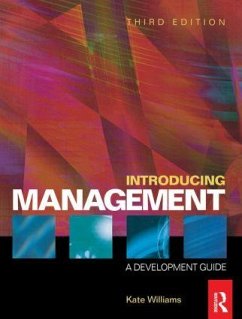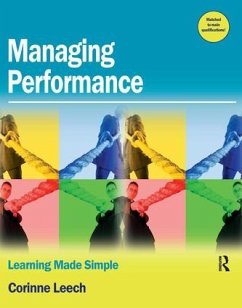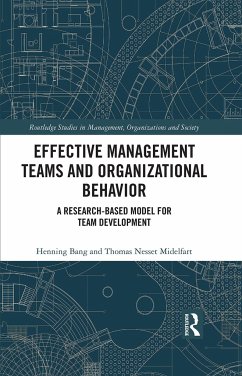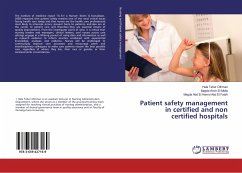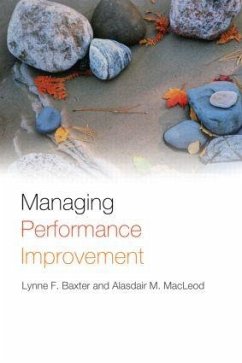
Developing an ISO 13485-Certified Quality Management System
An Implementation Guide for the Medical-Device Industry
Versandkostenfrei!
Versandfertig in 6-10 Tagen
51,99 €
inkl. MwSt.
Weitere Ausgaben:

PAYBACK Punkte
26 °P sammeln!
Developing an ISO 13485-Certified Quality Management System: An Implementation Guide for the Medical-Device Industry details the lessons learned from a real-world project focusing on building an ISO 13485:2016 Quality Management System (QMS) from scratch and then having it officially certified. It is a practical guide to building or improving your existing QMS with tried and tested solutions.The book takes a hands-on approach-first teaching the top 25 lessons to know before starting to develop a QMS and then walking you through the process of writing the quality manual and the standard operati...
Developing an ISO 13485-Certified Quality Management System: An Implementation Guide for the Medical-Device Industry details the lessons learned from a real-world project focusing on building an ISO 13485:2016 Quality Management System (QMS) from scratch and then having it officially certified. It is a practical guide to building or improving your existing QMS with tried and tested solutions.
The book takes a hands-on approach-first teaching the top 25 lessons to know before starting to develop a QMS and then walking you through the process of writing the quality manual and the standard operating procedures, training the staff on the QMS, organizing an internal audit, executing a management review, and finally passing the necessary external audits and obtaining certification. It helps you to progress from one task to the next and provides all the essential information to accomplish each task as quickly and efficiently as possible. It does not attempt to replicate the standard but instead drills into the standard to expose the core of each section of the standard and reorganize its contents into a practical workflow for developing, maintaining, and improving a Lean QMS.
The book includes a wealth of real-world experience both from the author's personal dive into quality management, and from the experiences of other companies in the field and provides handy checklists for ensuring key documents and processes are fit for use-the emphasis here is to help ensure you have considered all relevant aspects.
In addition, the book is not intended as a "cheat sheet" for the standard or as a review of the standard that only adds lengthy commentary on each of the clauses. Instead, the book fixes easy misunderstandings regarding QMS, provides insight into why the various clauses are written the way they are, and provides a great base to both understanding ISO 13485 QMS and developing your own QMS. The book is intended to serve both experts and novices audiences-it provides special insight on the most crucial and effective aspects of QMS.
The book takes a hands-on approach-first teaching the top 25 lessons to know before starting to develop a QMS and then walking you through the process of writing the quality manual and the standard operating procedures, training the staff on the QMS, organizing an internal audit, executing a management review, and finally passing the necessary external audits and obtaining certification. It helps you to progress from one task to the next and provides all the essential information to accomplish each task as quickly and efficiently as possible. It does not attempt to replicate the standard but instead drills into the standard to expose the core of each section of the standard and reorganize its contents into a practical workflow for developing, maintaining, and improving a Lean QMS.
The book includes a wealth of real-world experience both from the author's personal dive into quality management, and from the experiences of other companies in the field and provides handy checklists for ensuring key documents and processes are fit for use-the emphasis here is to help ensure you have considered all relevant aspects.
In addition, the book is not intended as a "cheat sheet" for the standard or as a review of the standard that only adds lengthy commentary on each of the clauses. Instead, the book fixes easy misunderstandings regarding QMS, provides insight into why the various clauses are written the way they are, and provides a great base to both understanding ISO 13485 QMS and developing your own QMS. The book is intended to serve both experts and novices audiences-it provides special insight on the most crucial and effective aspects of QMS.





